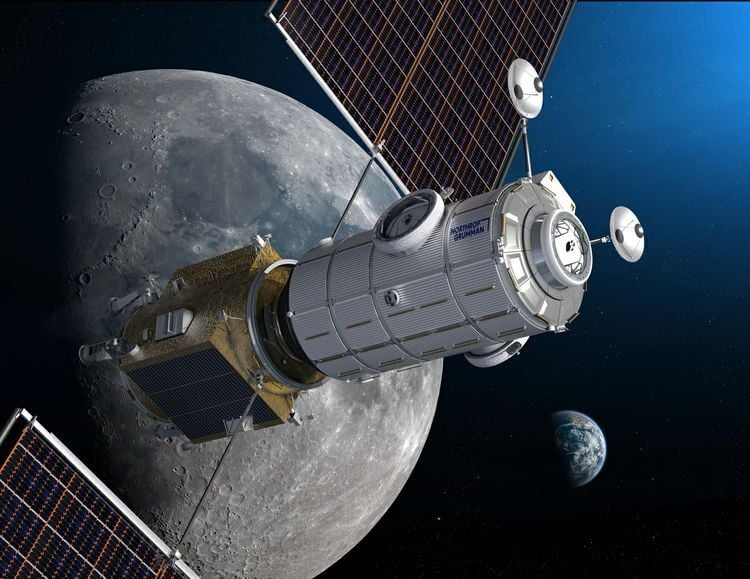Tucson-based Paragon Space Development Corp. is working to make sure future astronauts orbiting the moon are safe and comfortable, as part of a team building a new lunar space station.
Paragon, a longtime NASA contractor, announced Friday that it is designing and building the environmental control and life-support systems for aerospace giant Northrop Grumman for the Habitation and Logistics Outpost (HALO), the crew module of NASA’s Gateway project to set up a space station into orbit around the moon as soon as 2023.
NASA awarded Northrop a $187 million design and development contract for HALO in June 2020, but Paragon wasn’t initially allowed to disclose its involvement.
Based on Northrop’s Cygnus pressurized cargo spacecraft currently delivering cargo to the International Space Station, HALO will serve as the living quarters for astronauts traveling to the moon — and perhaps in the future, to deep space and Mars.
About the size of a small studio apartment, the HALO can support a crew of four for up to 30 days when NASA’s Orion spacecraft is docked to the Gateway lunar space station.
Paragon said its systems will provide a “comfortable, shirt-sleeves environment” for visiting crew members, maintaining the air and temperature as well as safe levels of oxygen, carbon dioxide, humidity and trace contaminants.
“The HALO life support system is optimized to meet the specific mission requirements established by NASA and Northrop Grumman and it’s going to do so efficiently, safely and affordably,” Barry Finger, Paragon vice president of engineering and chief engineer, said in prepared remarks.
Paragon founder and CEO Grant Anderson said NASA’s HALO program is an indication of America’s refocus on long-duration space and a renewed commitment to human space exploration.
“The HALO program will provide the precursor to extended missions to Mars, and should be inspiring to all Americans and the world community,” Anderson said.
In February 2021, NASA awarded Elon Musk’s SpaceX a $331 million contract to launch the HALO and a propulsion unit for the Gateway as soon as 2024.
Paragon has been providing environmental space systems to NASA, military and commercial customers around the world for more than 28 years.
A water-purification device designed and made by Paragon is currently in testing aboard the International Space Station.
Moon lander on indefinite hold
Meanwhile, Paragon’s effort to supply life-support systems for a new lunar lander system is on indefinite hold.
Paragon is part of a team led by Dynetics Inc. competing against SpaceX and Blue Origin for the initial contract for NASA’s Human Landing System, part of the Artemis project to return humans to the Moon.
In mid-April, after a nearly yearlong competitive development process, NASA announced that it would move forward with only SpaceX for the Human Landing System program, scrapping its earlier plan to pick two teams to move forward in the next phase of development.
NASA cited budget constraints and SpaceX’s low cost, as well as technical considerations, as the basis for its decision.
But Dynetics and Blue Origin both formally protested NASA’s decision in late April, and NASA has ordered SpaceX to halt work on the program pending resolution of the contract challenges.
Dynetics got the highest scores on NASA’s baseline review of the HLS proposals last year, but NASA found deficiencies in a subsequent review.
In statement explaining the sole-source decision, NASA associate administrator Kathy Lueders said the Dynetics design for a unified, single-stage descent and ascent vehicle had some advantages, and its low-slung lander design would enable easier loading.
But Lueders said the Dynetics proposal suffered from a number of serious flaws that increased risk, including an overweight lander and questions surrounding the technological maturity of a new in-space fueling system.





